April 20, 2023
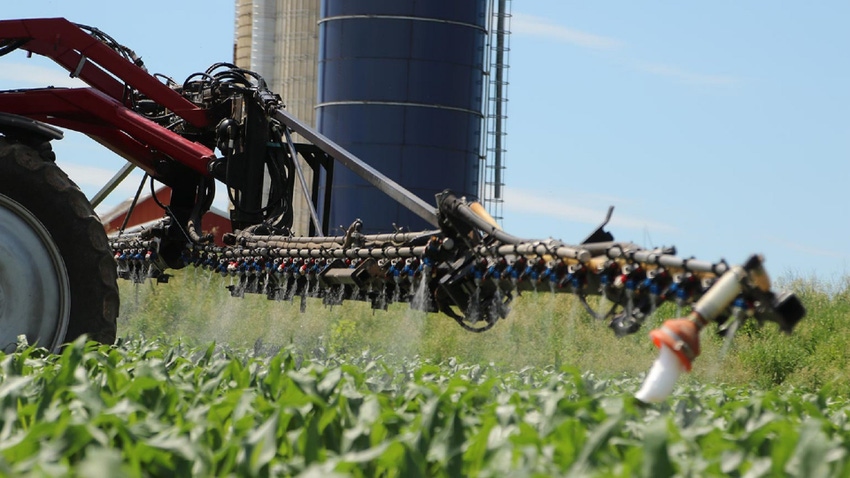
Weed control decisions and investments are critical to every growing season and directly impact your bottom line. Get the facts about using the Enlist® weed control system to keep herbicide-resistant weeds from robbing yield:
MYTH: Cupping is a regular development phase of Enlist E3® soybeans.
FACT: Enlist herbicides do not cause soybean cupping.
Soybean cupping is a crop injury caused by dicamba drifting onto Enlist E3 soybeans or other soybeans not tolerant to dicamba. Soybeans without the dicamba-tolerant trait may show symptomology from dicamba exposure at less than 1/800 of the standard spray rate, according to crop sensitivity research from University of Georgia.
After an application of an Enlist herbicide, Enlist E3 soybeans may see a temporary crop response. This “droop” or “sleepy” effect on the crop occurs while the plant is working to metabolize 2,4-D choline. It’s more likely to occur in conditions where the plant is stressed, including hot daytime temperatures and drought. The plants metabolize the 2,4-D choline and return to normal typically within 24 to 48 hours.
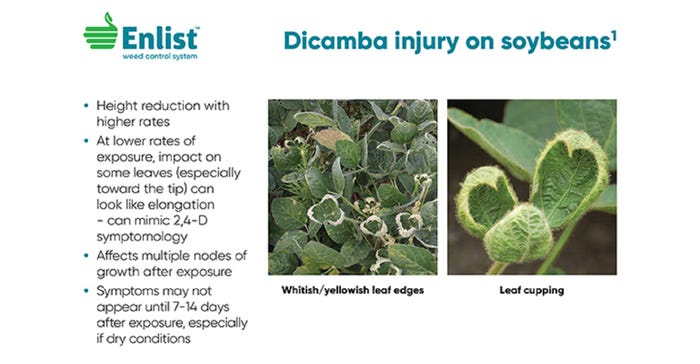
Photo submitted by Corteva Agriscience
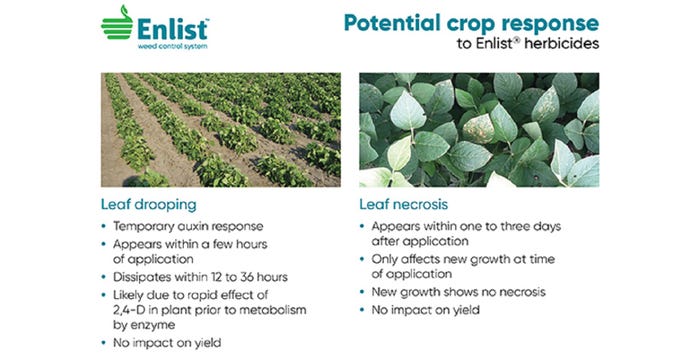
Photo submitted by Corteva Agriscience
MYTH: All herbicides drift.
FACT: Drift can be caused by many factors, such as improper nozzle use and wind or weather conditions. Not all herbicides are formulated in the same way. Some are more prone to drift than others.
Enlist herbicides are formulated with Colex-D® technology and proven to have near-zero volatility and less physical drift than dicamba when following label directions and using qualified nozzles.
Enlist Duo® herbicide is 98% less volatile compared with a tank mix of BPMA dicamba and glyphosate.
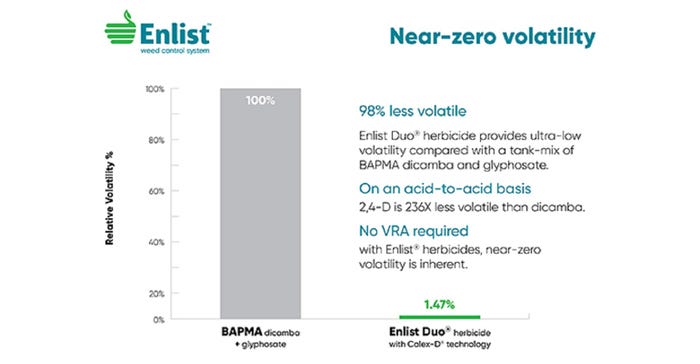
Photo submitted by Corteva Agriscience
MYTH: Dicamba regulations aren’t that serious.
FACT: Stricter regulations make it less convenient to use dicamba in certain areas. Farmers across the country are speculating about additional regulations to come, and farmers in Iowa, Illinois, Indiana and South Dakota are already facing changes.
In February 2023, the U.S. Environmental Protection Agency announced new amendments that further restrict the use of over-the-top (OTT) dicamba herbicides for the four Midwestern states.
The new restrictions include:
No spraying on dicamba-tolerant soybeans in Iowa, Illinois and Indiana after June 12 or V4 growth stage, whichever comes first.
No spraying on DT cotton in Iowa, Illinois and Indiana after June 12 or first square, whichever comes first.
No spraying on DT crops after June 20 in South Dakota.
Enlist herbicides, which are registered through 2029, provide more flexibility for farmers with wide application windows and no calendar cutoff dates, unlike dicamba.
Enlist herbicides also have more than 1,600 qualified tank-mix partners, no time-of-day application restrictions and a broad range of qualified nozzles so farmers can find the right balance of coverage and drift control.
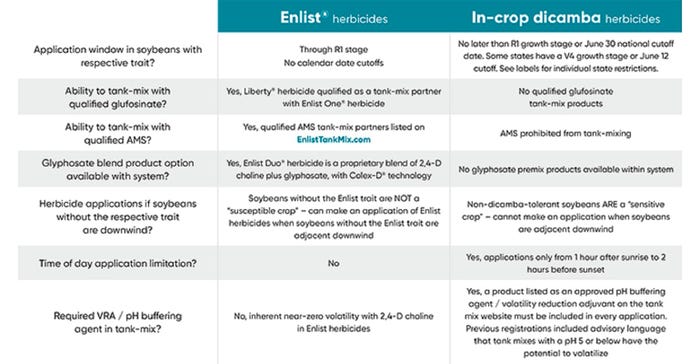
Photo submitted by Corteva Agriscience
MYTH: The Enlist weed control system can’t control weed challenges.
FACT: The Enlist system gives farmers more flexible weed control than other systems and encourages using a program approach to manage those weeds.
Farmers continue to battle resistant weeds, particularly those resistant to glyphosate. With flexible tank-mix options, farmers can use the most effective tank mix for their operation, including Enlist One® and Liberty® herbicides, to control those resistant weeds.
Purdue University conducted a seven-year study that showed using multiple modes of action (MOA) in a fully diversified weed control program will reduce the weed seedbank and reduce the number of weed species — therefore, mitigating the evolution of herbicide resistance.
There are more than 1,600 qualified products — including herbicides, fungicides, insecticides and adjuvants — that can be tank-mixed with Enlist One and applied over the top of soybeans, cotton and corn for broad-spectrum weed control. Enlist herbicides also can be applied as preemergence and in burndown — with no plant-back restrictions for Enlist crops.
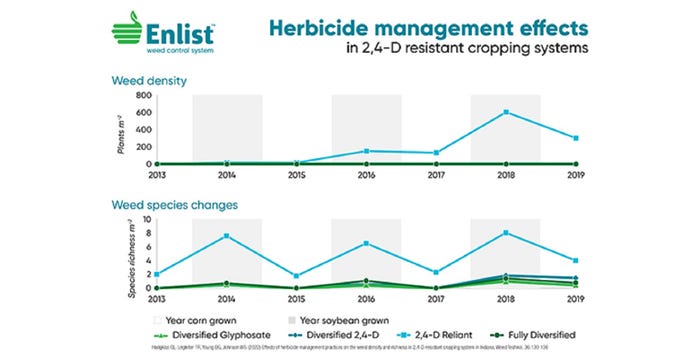
Photo submitted by Corteva Agriscience
To learn more about preventing weed resistance, the Enlist Ahead management resource offers best practices, tools and training to achieve optimum results and sustain the long-term performance of the Enlist system.
™ ® Colex-D, Enlist, Enlist Duo, Enlist E3 and Enlist One are trademarks of Corteva Agriscience and its affiliated companies. ®Liberty is a registered trademark of BASF. The transgenic soybean event in Enlist E3® soybeans is jointly developed and owned by Corteva Agriscience and M.S. Technologies L.L.C. Enlist Duo® and Enlist One® herbicides are not registered for sale or use in all states or counties. Contact your state pesticide regulatory agency to determine if a product is registered for sale or use in your area. Enlist Duo and Enlist One herbicides are the only 2,4-D products authorized for use with Enlist® crops. Consult Enlist herbicide labels for weed species controlled. Always read and follow label directions. © 2023 Corteva.
You May Also Like





